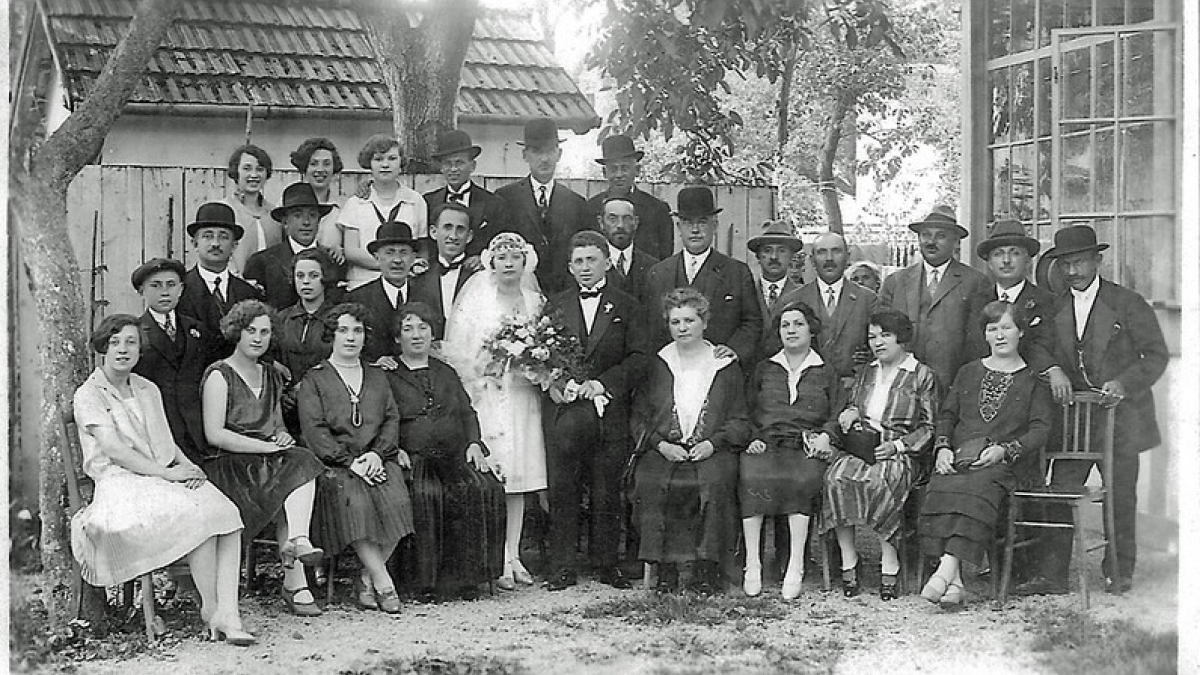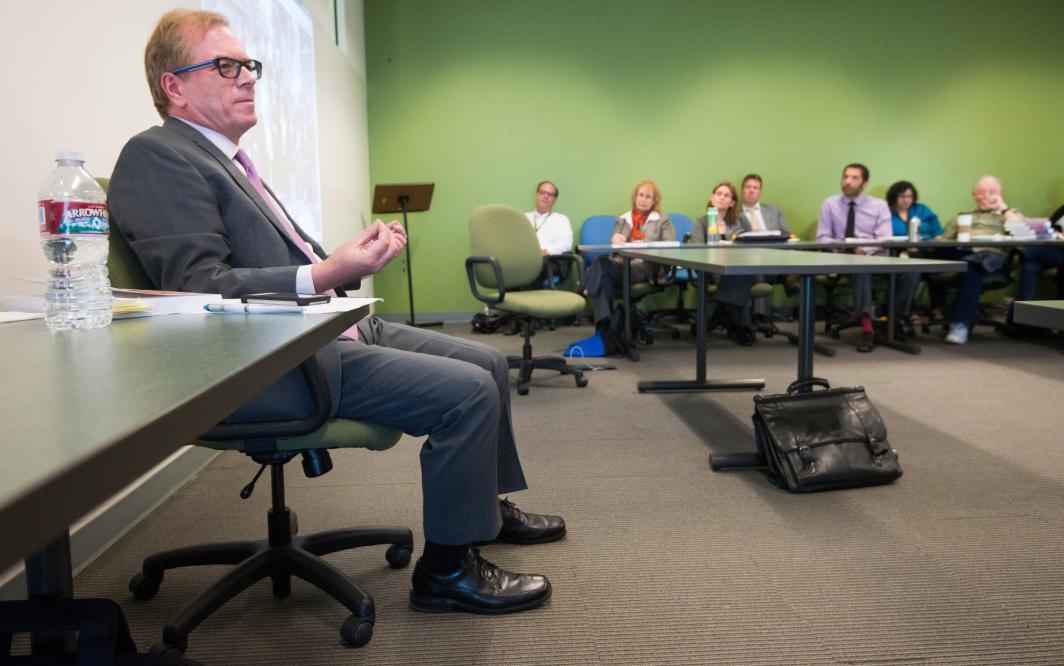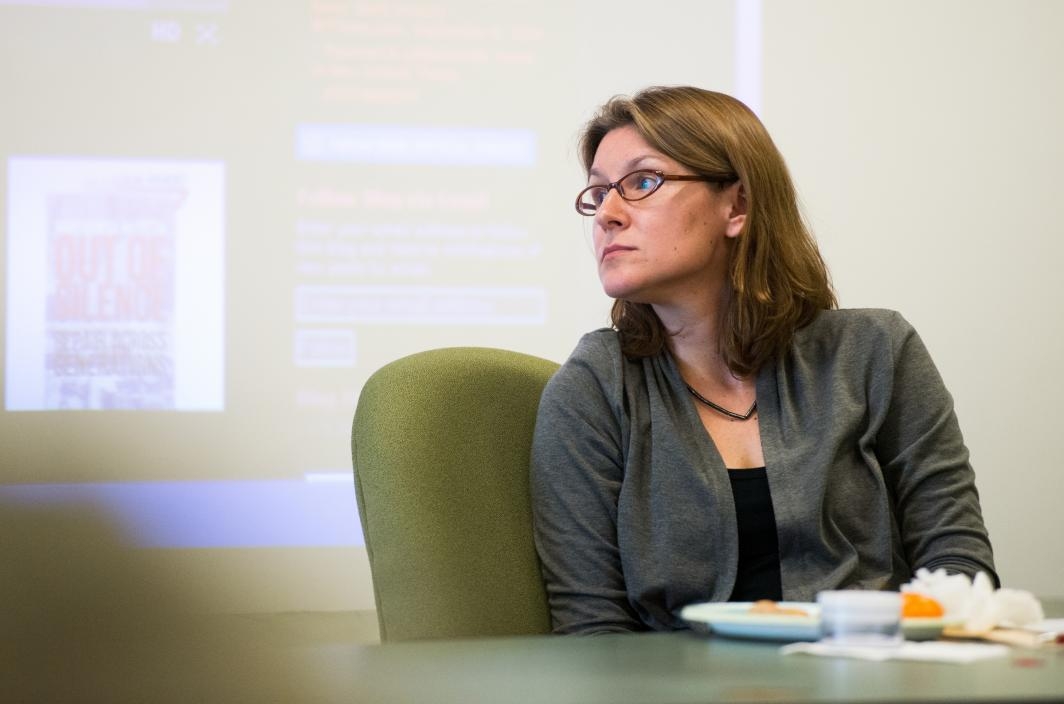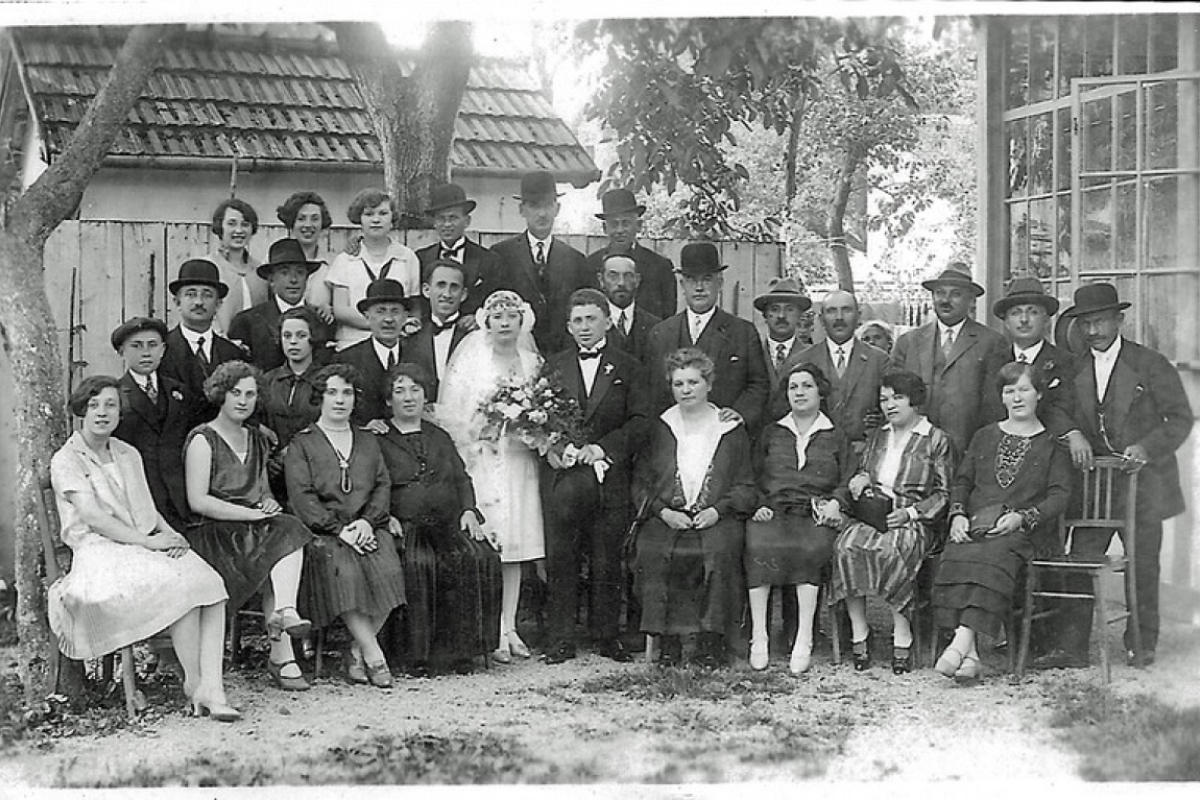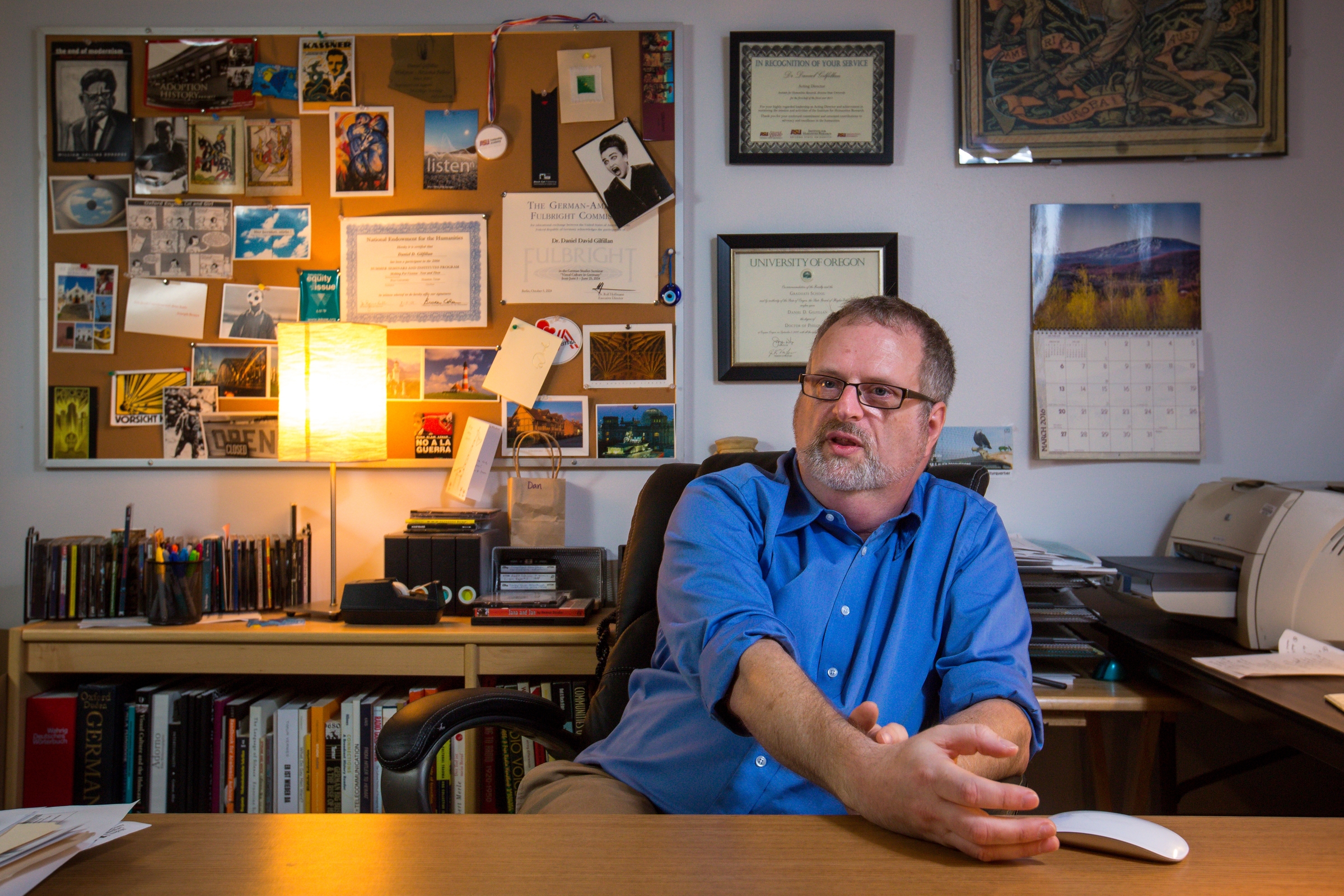It may be hard to believe, but already the better half of a century has passed since World War II broke out. Despite the distance time has graced us from its atrocities, their effects are still felt by the generations of individuals descended from its victims — individuals like ASU professor Martin MatustikMartin Matustik is the Lincoln Professor of Ethics and Religion at ASU’s New College of Interdisciplinary Arts and Sciences., who discovered only at the age of 40 that he was the child of a Holocaust survivor.
The subsequent journey that discovery took him on opened Matustik’s eyes to a world of trauma and suffering he never realized was so close to him. And perhaps the worst part was knowing that the very kind of discrimination and xenophobia that caused it all is still happening today in places like Europe, currently dealing with one of the world’s largest refugee crises ever.
“East Europeans still fear the ghosts of the vanished Jews, and they raise fences to keep Syrian refugees out, even though very few want to settle in Eastern Europe,” bemoaned Matustik.
Fortunately, he has had the opportunity to share his story and bring attention to the issue with the publication of his book, “Out of Silence: Repair Across Generations,” which he discussed last Wednesday at a book panel organized by the Center for Jewish Studies, in collaboration with the Melikian Center: Russian, Eurasian and East European Studies.
At the panel, Matustik recounted the story of how he discovered his mother’s secret past, which included family members he never knew existed, and set him on the path of discovering his true identity.
Assistant professor in the School of Historical, Philosophical and Religious Studies Anna Cichopek-Gajraj also spoke at the panel about her similarly themed book, “Beyond Violence: Jewish Survivors in Poland and Slovakia, 1944-48.”
A native of Poland, Cichopek-Gajraj was “shook to the core” when in 2000 she read Jan T. Gross’ “Neighbors,” which showed how “Polish neighbors” were complicit in wartime genocide.
“It prompted serious introspection into what it meant to belong to a national community, or what do crimes of my grandparents’ generation say about me,” said Cichopek-Gajraj, who still struggles with the issue.
For associate professor of German studies Daniel GilfillanDaniel Gilfillan is an associate professor of German studies and information literacy in the School of International Letters and Cultures, as well as faculty affiliate in film and media studies, Jewish studies and English., the period of history surrounding World War II “is one that showcases the potential of taking a certain conversation to its ultimate extremes.” Furthermore, he continued, “I think there are some parallels to what we might be seeing politically in the United States today and elsewhere.”
Along with Matustik, Gilfillan will be delivering an Institute for Humanities Research faculty seminar titled “Remembering WWII: Victims and Survivors,” at 10 a.m. Wednesday, March 23, in the Social Sciences building, room 109, on the Tempe campus.
Gilfillan’s research focuses on 20th-century literature, film and media studies in the German-speaking sphere. His portion of the seminar will look at the propaganda films “The Ghetto” (1942) and “The Führer Gives a City to the Jews” (1944), examining what the films’ use of close-up reveals about the faces of the victims featured.
Associate professor of German studies Daniel Gilfillan speaks about his research in his office March 17. Along with humanities professor Martin Matustik, Gilfillan will deliver the "Remembering WWII: Victims and Survivors" faculty seminar from 10 to 11:30 a.m. March 23. Photo by Charlie Leight/ASU Now
“There’s something about that immediate capture of the close-up on film, and what that face tells us about the narrative that is about to be extinguished,” Gilfillan said. And it is those personal narratives (which both Matustik and Cichopek-Gajraj detail in their respective books), he explained, that end up transitioning into larger, representational models of a collective experience of a traumatic event — whether it’s the Holocaust or something more recent, like 9/11.
Having those representational models is important. They make sure we don’t forget by reminding us of the humanity of the victims, and they ask us to question how these incidents of large-scale atrocities and human suffering fit into the human condition. According to Gilfillan, understanding that is imperative to living in today’s international world, something he hopes students take to heart:
“In moving out into the world, you can have a particular skill set that’s based on economics of business or engineering or journalism, but that skill set is only going to take you so far. You need to also have those moments of emotional connection, intellectual connection and understanding of what it means to live in an international world, versus a world that wants to create walls and borders, and values [those things] over progress.”
To learn more about Matustik’s story and his book, visit his website at www.newcriticaltheory.com.
More Arts, humanities and education

ASU's Poitier Film School to host master classes, screening series with visionary filmmakers
Rodrigo Reyes, the acclaimed Mexican American filmmaker and Guggenheim Fellow whose 2022 documentary “Sansón and Me” won the Best Film Award at Sheffield DocFest, has built his career with films that…

Pen Project helps unlock writing talent for incarcerated writers
It’s a typical Monday afternoon and Lance Graham is on his way to the Arizona State Prison in Goodyear.It’s a familiar scene. Graham has been in prison before.“I feel comfortable in prison because of…

Phoenix civil rights activists highlighted in ASU professor’s latest book
As Phoenix began to grow following WWII, residents from other parts of the country moving to the area often brought with them Jim Crow practices. Racism in the Valley abounded, and one family at…


